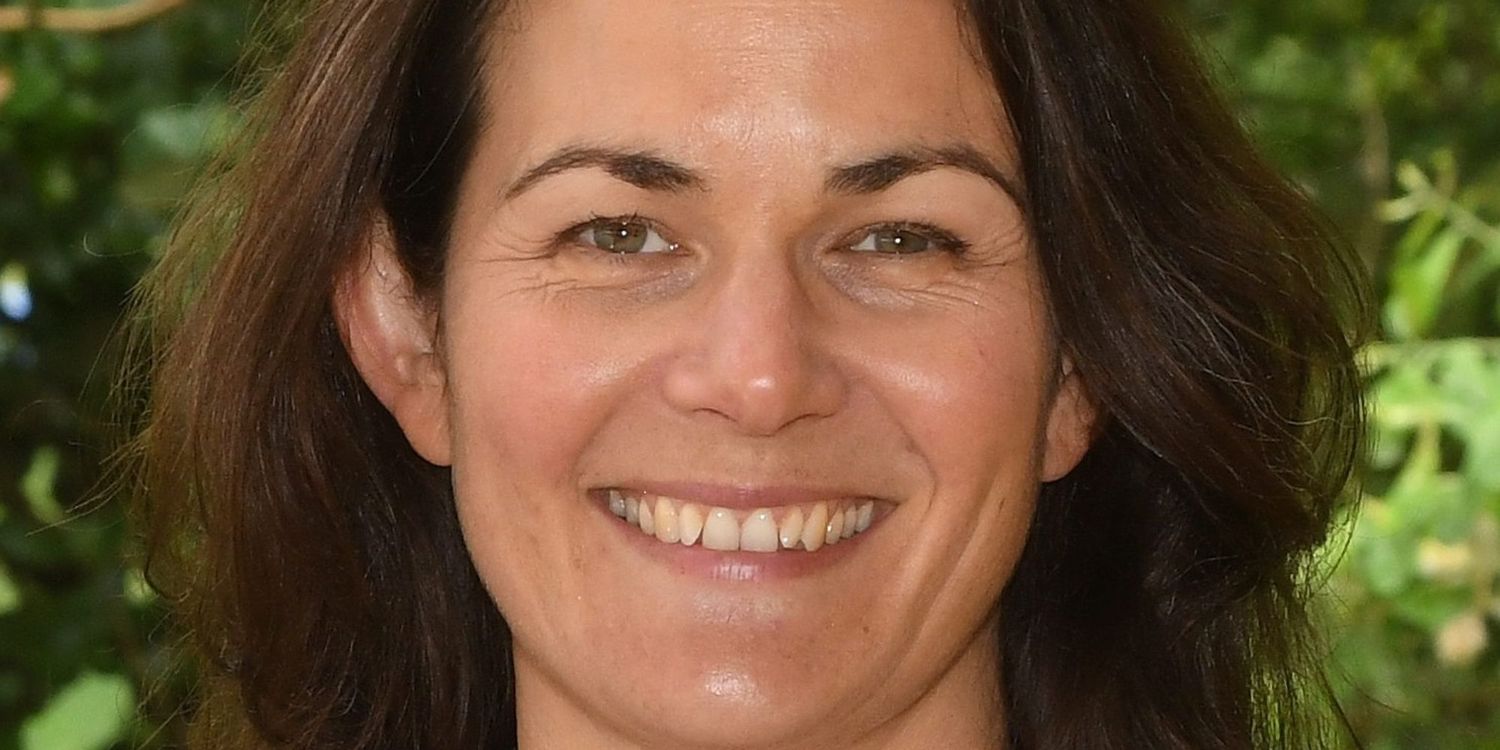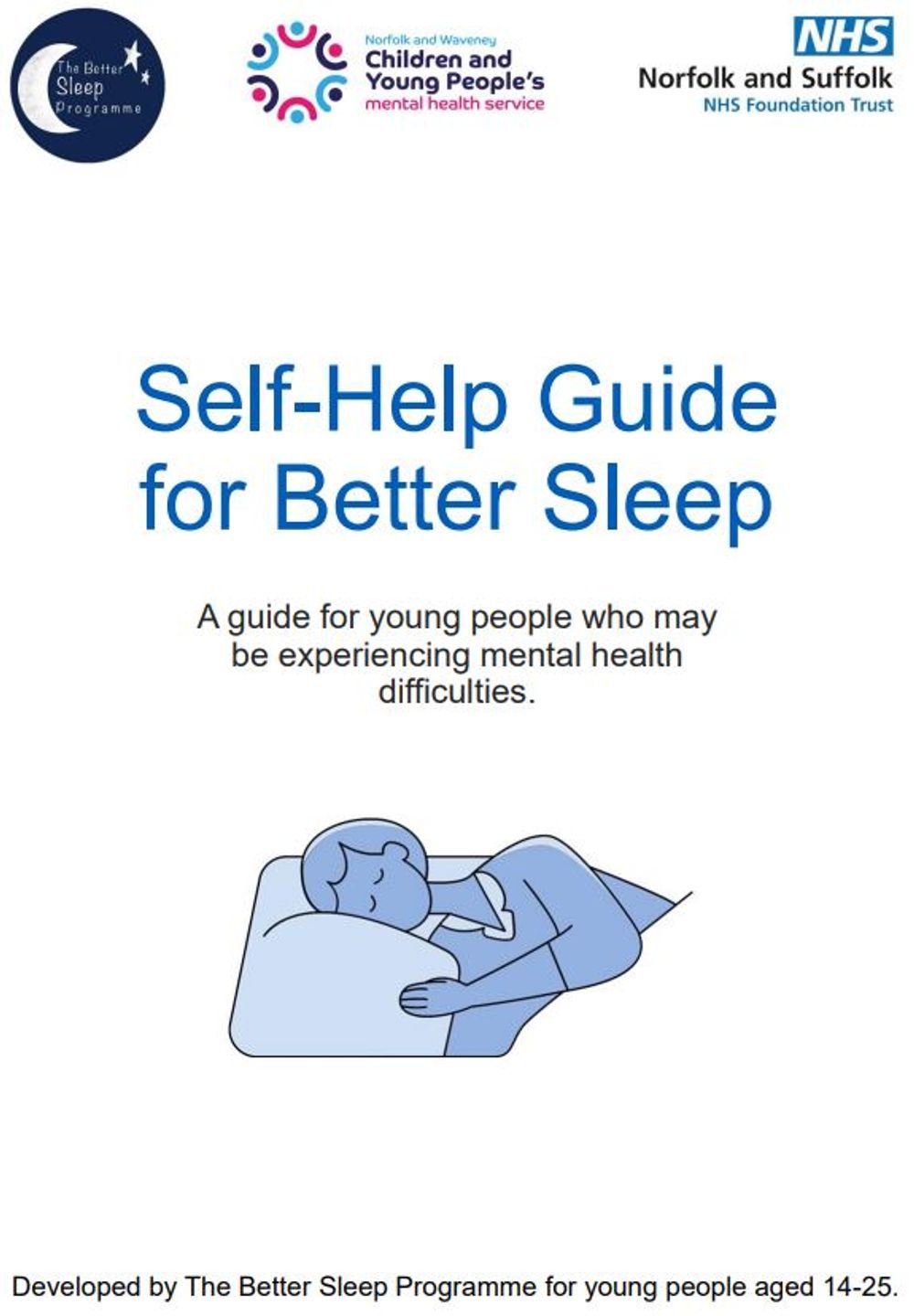12 Apr 2024
Feel free get in touch with us via email or social media.
© UEA. All rights reserved. University of East Anglia, Norwich Research Park, Norwich, Norfolk, NR4 7TJ, UK
Improving a Young Person’s Sleep – The Key to Better Mental Health?

Dr Rebecca Rollinson is a Clinical Psychologist working for NSFT and Lead for The Better Sleep Programme. With an enthusiasm for improving the sleep of young people Rebecca developed the programme to provide training, workshops and supervision to increase access to treatment and raise awareness and knowledge of the impact of good quality sleep for young people with mental health difficulties.
Why are we targeting sleep?
Sleep difficulties are particularly prevalent in young people and are well-documented as a risk factor contributing to all forms of mental health difficulties.
Results from the 2022 NHS survey show that 34% of 7-16yr olds struggle with their sleep three times a week and the prevalence increases to 72.3% in those experiencing mental health difficulties.
Sleep difficulties rise to 64% in those aged 17-25yrs and reach 89.5% in 17-25yr olds struggling with mental health difficulties.
Recent research has found that insomnia precedes the onset of mental health difficulties and that treating insomnia can improve mental health, however treating mental health difficulties does not show the same reduction in insomnia. (Hertenstein et al., 2019; Orchard et al., 2020)
Targeting sleep can therefore improve outcomes in both sleep and wellbeing and is often viewed as a more accessible intervention by young people.
Our offer
Despite research evidencing the importance of sleep, insomnia is rarely addressed without medication within mental health services. Our programme adapted Cognitive-Behavioural Therapy for Insomnia (CBT-I) to be suitable for young people with mental health difficulties.
The ‘upto’ 6 session intervention includes:
- Assessmentof the presenting sleep difficulty and formulation of what’s keeping it going.
- Psychoeducationon the body clock, the sleep drive and how daytime activities impact on our sleep.
- Quick wins for getting your sleep back on track.
- Sleep specific strategies – sleep scheduling, boosting the bed = sleep response, relaxation & soothing, understanding nightmares and grounding techniques.
- Cognitive and behavioural strategies–behavioural activation and techniques for managing worry.
We provide training and supervision to mental health professionals from services across Norfolk and Waveney and host workshops to increase awareness around the role of sleep in mental health.
Our aimis to embed this intervention into routine practice, allowing young people in Norfolk and Waveney timely access to first-line NICE recommended treatment for insomnia.

The story so far...
Thanks to funding from Norfolk and Waveney CYP ICB and a UEA HSCP grant, The Better Sleep Programme hasprovided online training for 137 practitioners to date that allows them to deliver a sleep intervention to young people across the region.
We have also provided online workshop to increase knowledge and improve advice to 130 professionals to date.Training feedback has been extensively positive with 100% of attendees reporting that they would recommend the training.
To date, we have outcome data collected for 94 young people. Interim analyses indicate high baseline levels of insomnia and significant improvements being seen in sleep and wellbeing after six sessions of sleep work.
We have found 68% of service users no longer reaching clinical threshold for insomnia and 35% scoring below the clinical range on wellbeing measures (compared to 80% and 93% scoring above respectively at baseline).
The meaning of this change is captured in positive feedback and quotes from service users:
Practitioners report drawing on their new skills in their work with many of the young people they are working with. We estimate at least 1000 young people will already have benefitted from more informed help with their sleep to date.
We found that providing supervision following the training, offering workshops to the wider system and working with teams to adapt the intervention to their service are crucial components for system change.
What next?
Despite not being a first-line intervention, medication is often offered for sleep as the only available treatment. Medication is often not effective in the long term and frequently comes with unwanted side effects.
Increasing the availability of a first-line, cognitive behavioural interventioncould help to reduce the health and economic costs of prescribing medication to young people.
We think that the current evidence points towards good quality sleep being a valuable and efficient way of improving the lives of young people and potentially lessening the burden on youth mental health services in the future.
We also believe that the system needs ongoing training and supervision to maintain momentum. Staff turnover in services can be rapid and there are many competing priorities in youth mental health.Withoutongoing training and supervision sleep work can easily be diluted or omitted altogether.
Publications
Rollinson, R., Price, I., Gee, B., Lyons, J., Carroll, B., Wilson, J., & Clarke, T. (2021). Low-intensity sleep intervention in a youth mental health service: a case series analysis. Behavioural and Cognitive Psychotherapy, 49(1), 62-75. https://www.cambridge.org/core/journals/behavioural-and-cognitive-psychotherapy/article/abs/lowintensity-sleep-intervention-in-a-youth-mental-health-service-a-case-series-analysis/9E814C18943D46A72A1A02CF4227F2D4?utm_campaign=shareaholic&utm_medium=copy_link&utm_source=bookmark
Rollinson, R., Cole, A., Gee., B., Tofan, I., Graham, A., Hatton, J., Lyons, J., Reeve, S., Wilson, J., Beardsworth, K., Clarke, T. (2024). Delivering a sleep intervention across an NHS youth mental health service using non-expert practitioners: a service evaluation. Early Intervention in Psychiatry (In submission).
The Norfolk and Waveney Integrated Commissioning Board (ICB) funded us to improve access to effective help with sleep across the wider youth mental health system.
The research was supported by UEA Health and Social Care Partners (UEAHSCP). The views expressed are those of the author(s) and not necessarily those of the University of East Anglia or UEA Health and Social Care Partners.
Related News & Events
No results, please try changing the filters
Stay up to date
Subscribe to our newsletter to receive news on the latest updates and projects in health and social care research.